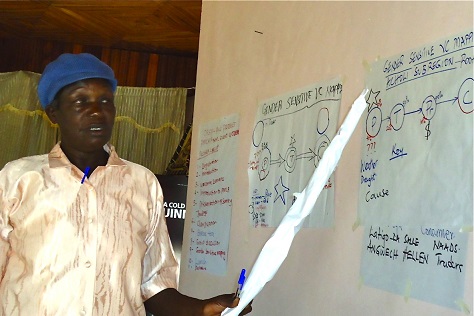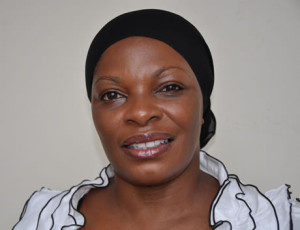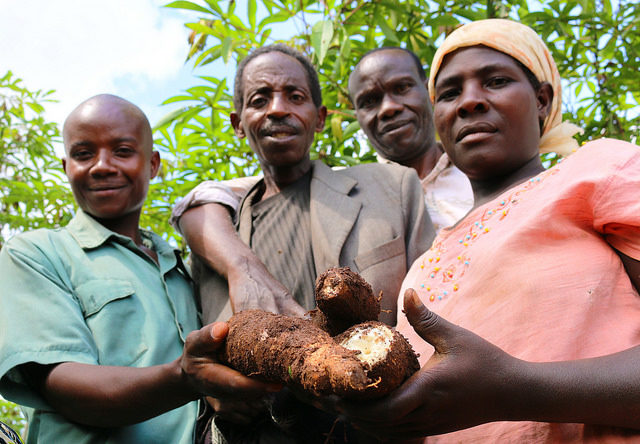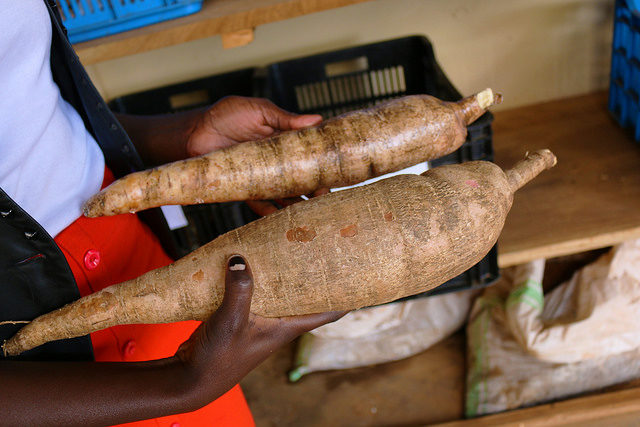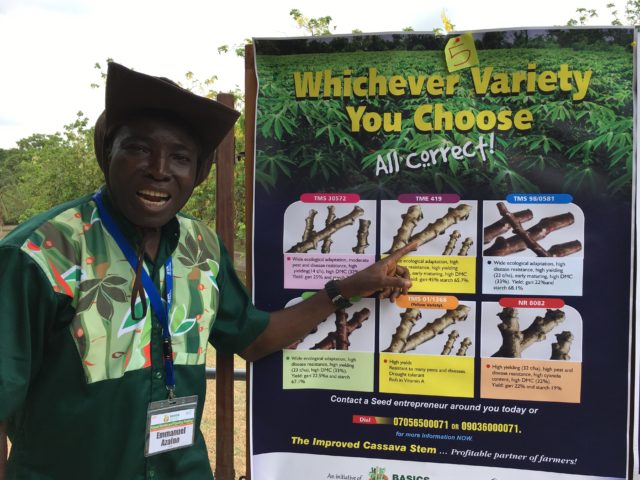Fifteen researchers from four RTB centers (Bioversity, CIAT, CIP and IITA) have gathered in Entebbe, Uganda this week to share lessons learned from value chain interventions and to develop tools to make them more gender equitable and effective.
According to Sarah Mayanja, a Research Associate with CIP and one of the organizers of the RTB workshop on engendering value chains, participants will share their experiences and lessons learned from integrating gender in market approaches, focusing on aspects such as the context of application, methods, results and challenges.
“There will be a special session on tools. We’ll review the gaps and look for ways to address them,” Mayanja explained. She added that workshop goals include developing plans for more cross-center engagement on gender and collaborative research on the gender aspects of value chains.
Silvia Barone, a CIP Research Associate for value chains in Latin America and the Caribbean – under a collaboration with the CGIAR Research Program on Policies, Institutions and Markets (PIM) – noted that the current meeting grew out of efforts by Mayanja and Margaret McEwan, a Research Leader in CIP’s Social and Health Sciences Division, to engender the Participatory Market Chain Approach (PMCA) in East Africa.
The PMCA was developed for potato farmers in South America more than a decade ago, but it has since been applied in Asia and Africa, and for other products, which has resulted in a steady evolution of the approach. Barone, who is currently using the PMCA in Colombia and Ecuador, explained that she and her colleagues have been applying and testing gender tools and that she will share their experiences and lessons learned with the colleagues at the workshop.
“Under RTB, we want to systematize the gender work, report on lessons learned during the application of methodologies, and validate the tools that have been developed, “ Barone said. She added that in addition to examining ways to make the PMCA more gender responsive, workshop participants will discuss other ways to improve RTB value chain interventions.
The gender workshop will be followed immediately by a planning meeting for the new RTB project to expand the utilization of RTB crops in Uganda. That three-year, cross-center initiative was launched late last year and is supported by the European Union and the International Fund for Agricultural Development (IFAD). Uganda is a priority country for RTB because of its high levels of poverty and the fact that all the RTB crops are grown there.
Mayanja, the Research Associate for the Uganda project, noted that it will have a strong gender component. She explained that national partners and stakeholders will participate in the workshop and will contribute to a three-year research plan and detailed activity plan for 2014.
